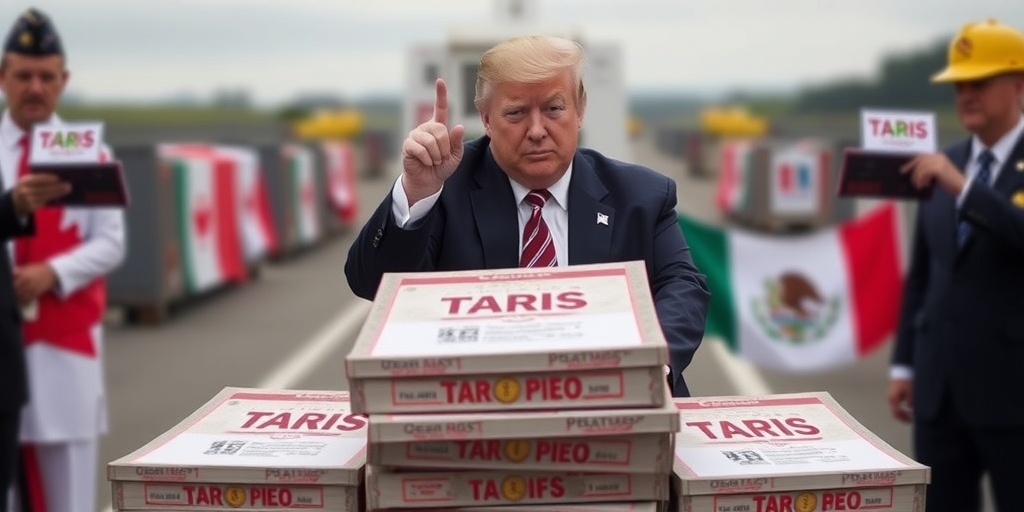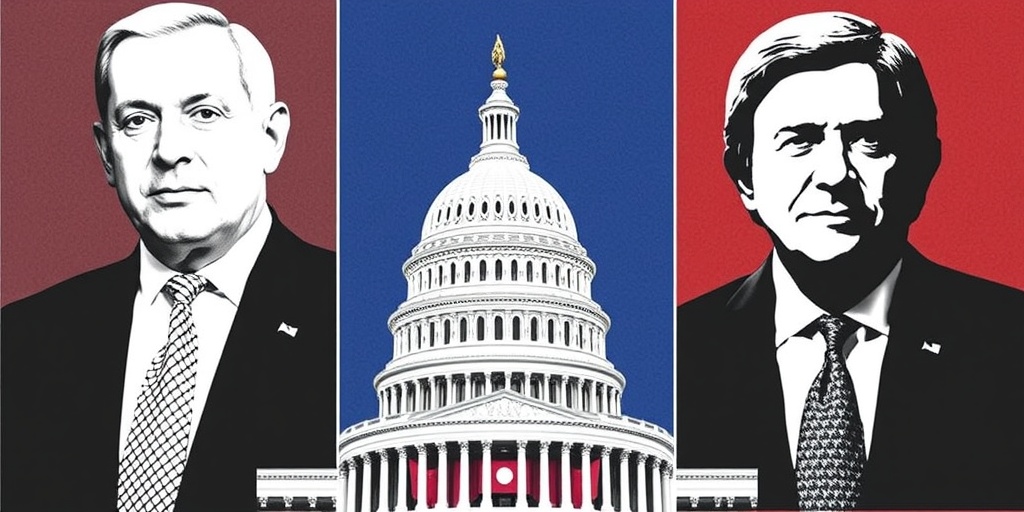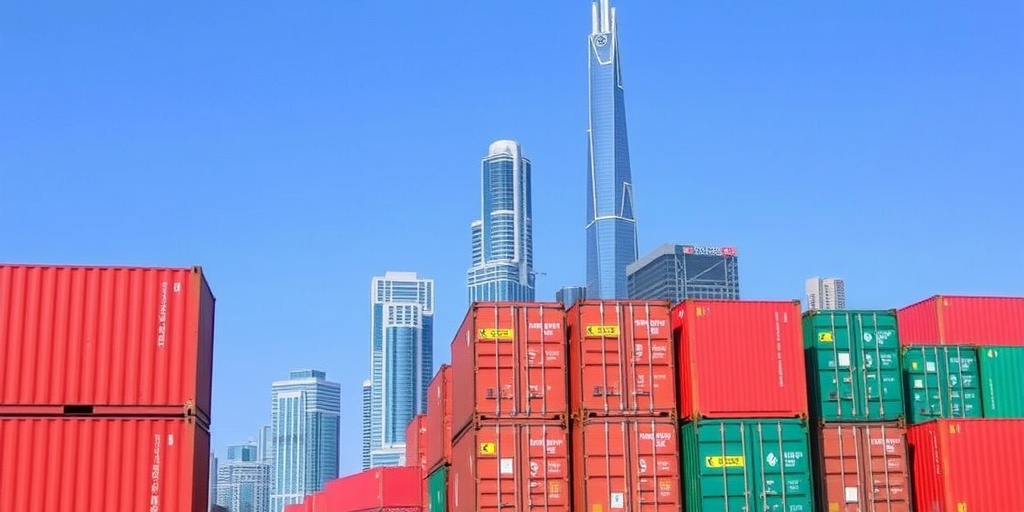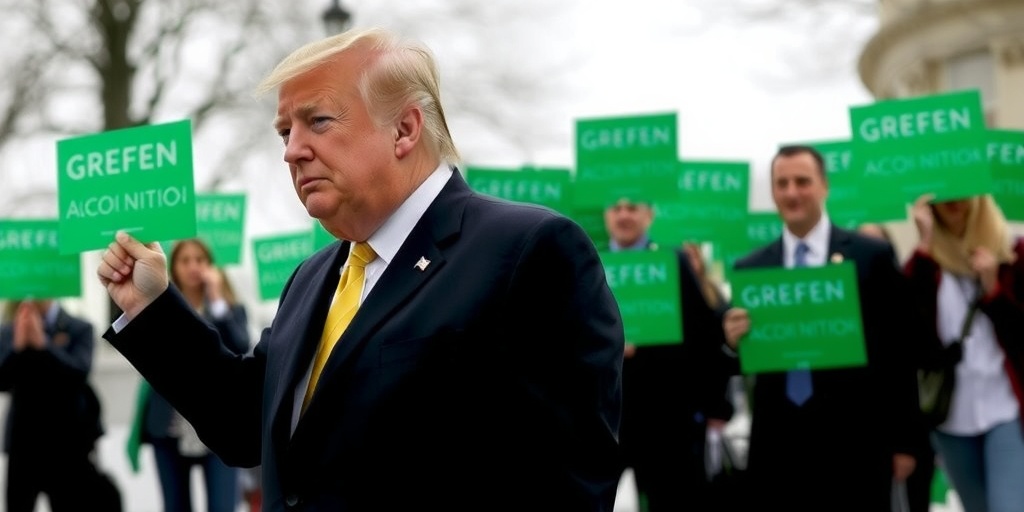Now Reading: Trump’s New Tariffs on Canada, Mexico, and China: A Major Gamble
-
01
Trump’s New Tariffs on Canada, Mexico, and China: A Major Gamble
Trump’s New Tariffs on Canada, Mexico, and China: A Major Gamble

Title: Trump’s Tariffs Spark Trade War Amid Economic Concerns
In a dramatic move, President Trump announced sweeping tariffs against major trading partners—including Canada, Mexico, and China—on Tuesday. This bold decision has raised concerns about a potential trade war, with ramifications for the U.S. economy. Analysts and business leaders are left questioning the rationale behind Trump’s actions, which appear to lack a coherent justification or prolonged negotiation efforts.
Trump has provided multiple justifications for these tariffs, claiming they serve as punishment for countries that fail to curb drug trafficking and immigration into the United States, as well as a method to incentivize manufacturing to return to American soil. At a press conference on Tuesday, he specifically cited perceived hostility from Canadian banks as an additional basis for the tariffs.
Canadian Prime Minister Justin Trudeau expressed confusion over Trump’s motivations, suggesting the tariffs were part of a larger strategy aimed at crippling Canada’s economy. "What he wants is to see a total collapse of the Canadian economy, because that’ll make it easier to annex us," Trudeau asserted, emphasizing that Canada will not become the 51st state of the U.S.
In response to the tariffs, which include a 25 percent levy on imports from Canada and Mexico and a further 10 percent on previous tariffs against China, Canada swiftly retaliated with its own tariffs on $30 billion worth of American goods. During a press briefing, Trudeau highlighted that while Trump’s tariffs may harm the Canadian economy, the negative effects will be felt on both sides of the border, warning that American families will also suffer.
Global stock markets reacted negatively to the news, with significant declines observed—particularly in the U.S. financial sector. The S&P 500 index saw a drop of up to 2 percent, adding to a prior 1.8 percent decline, marking its steepest drop of the year. Economists warn that Trump’s strategy of using tariffs as leverage could further destabilize an already fragile U.S. economy, grappling with inflation and slowing growth.
Many analysts caution that, coupled with the existing inflationary pressures, these tariffs may exacerbate costs for American households. Michael Hanson, a senior executive vice president at the Retail Industry Leaders Association, noted, "Tariffs on Canada and Mexico put those goals in serious jeopardy and risk destabilizing the North American economy.”
In the wake of the tariffs, business groups across various industries convened emergency meetings to discuss their response strategies. Some companies have indicated they may resort to legal action to challenge the authority under which these tariffs were enacted. Retailers like Target and Best Buy have already hinted at passing on the costs to consumers, with price increases on certain products anticipated in the near future.
Kathy Bostjancic, chief economist at Nationwide, estimates that if the tariffs remain and retaliatory measures continue, U.S. economic growth could diminish by a full percentage point in 2025. Furthermore, she projected that the cost of living could rise by about $1,000 annually for the average household due to tariffs.
While some voices within the manufacturing sector, like the United Autoworkers Union, welcomed the tariffs as a much-needed action against what they term the "free trade disaster," the overall sentiment among economists and business leaders remains one of concern regarding the long-term economic repercussions.
Trump remains steadfast in his stance, asserting that companies can avoid tariffs by relocating their production facilities to the United States. His message on social media was clear: "IF COMPANIES MOVE TO THE UNITED STATES, THERE ARE NOT TARIFFS!!!"
However, Trump’s threats have not gone unnoticed. He warned that if Canada retaliates with higher tariffs, the U.S. would respond with equivalent measures. His economic advisers attempted to clarify the administration’s position, with Commerce Secretary Howard Lutnick insisting that the tariffs were not a declaration of war on trade but rather a necessary step to tackle drug trafficking.
Experts suggest that while tariffs may increase domestic manufacturing, they also risk pushing Canada, Mexico, and China to diversify their trade partnerships. In light of the tariffs, Canada and Mexico are exploring alternative trading relationships with nations including Europe and Brazil.
As the tariffs begin to take effect, the potential for negative economic impacts looms large. A recent analysis indicated that a 25 percent tariff on imports from Canada and Mexico, reciprocated by similar tariffs from those nations, could lead to economic contraction in the U.S. while impacting Canadian and Mexican economies even more severely.
Democrats in Congress quickly condemned the tariffs, while some Republicans attempted to defend them as temporary measures aimed at addressing drug trafficking issues. Senators expressed hope that the tariffs would not result in prolonged disruptions, especially given the significant trade flows between the U.S., Canada, and Mexico.
As this trade war unfolds, the full extent of its impact on the U.S. and global economy remains to be seen. Economists, business leaders, and consumers are left watching closely, hoping for an outcome that mitigates the risks associated with these bold trade policies.
Stay Informed With the Latest & Most Important News
Previous Post
Next Post
-
 01New technology breakthrough has everyone talking right now
01New technology breakthrough has everyone talking right now -
 02Unbelievable life hack everyone needs to try today
02Unbelievable life hack everyone needs to try today -
 03Fascinating discovery found buried deep beneath the ocean
03Fascinating discovery found buried deep beneath the ocean -
 04Man invents genius device that solves everyday problems
04Man invents genius device that solves everyday problems -
 05Shocking discovery that changes what we know forever
05Shocking discovery that changes what we know forever -
 06Internet goes wild over celebrity’s unexpected fashion choice
06Internet goes wild over celebrity’s unexpected fashion choice -
 07Rare animal sighting stuns scientists and wildlife lovers
07Rare animal sighting stuns scientists and wildlife lovers





















